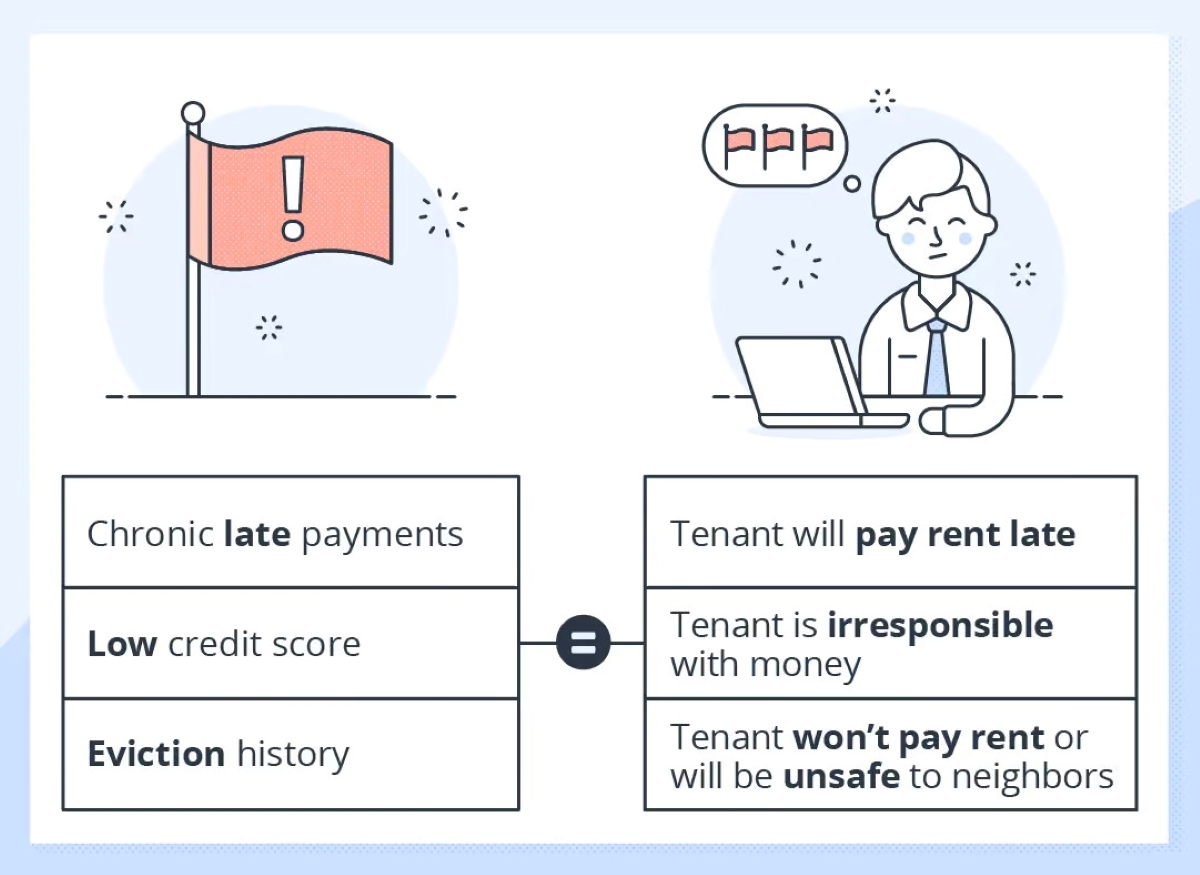

Finance
What Does A Supply Chain Analyst Do?
Published: October 19, 2023
A supply chain analyst in the finance field plays a crucial role in streamlining operations, optimizing inventory, and minimizing costs for businesses. Discover the key responsibilities and skills required for this dynamic role.
(Many of the links in this article redirect to a specific reviewed product. Your purchase of these products through affiliate links helps to generate commission for LiveWell, at no extra cost. Learn more)
Table of Contents
- Introduction
- Definition of a Supply Chain Analyst
- Responsibilities of a Supply Chain Analyst
- Data Analysis and Forecasting
- Process Improvement and Optimization
- Inventory Management
- Supplier Management
- Cost Analysis and Budgeting
- Demand Planning and Forecasting
- Collaboration and Communication
- Skills and Qualifications
- Conclusion
Introduction
Supply chain management is a crucial aspect of any business, ensuring that products or services are delivered to the end consumer efficiently and effectively. Within the realm of supply chain management, supply chain analysts play a vital role in ensuring the smooth flow of materials and information throughout the entire supply chain network.
A supply chain analyst is responsible for analyzing and optimizing the various components of a supply chain to drive better operational performance and cost savings. They utilize their expertise in data analysis, forecasting, process improvement, and inventory management to make informed decisions that positively impact the overall supply chain efficiency and profitability.
In today’s highly competitive business landscape, supply chain analysts are in high demand across industries. They play a critical role in enabling organizations to make better decisions, reduce costs, streamline processes, and meet customer demands more effectively. With their unique skill set, supply chain analysts bridge the gap between logistical operations and strategic business goals, making them an invaluable asset to companies looking to gain a competitive edge.
In this article, we will delve into the responsibilities of a supply chain analyst and explore the key skills and qualifications required to excel in this role. Whether you are aspiring to become a supply chain analyst or are curious about the inner workings of supply chain management, read on to gain a deeper understanding of what this role entails and how it contributes to the success of an organization.
Definition of a Supply Chain Analyst
A supply chain analyst is a professional who specializes in analyzing and optimizing the various components of a supply chain, including procurement, production, logistics, and distribution. Their primary goal is to ensure the seamless flow of products or services from the point of origin to the end consumer.
Supply chain analysts work closely with cross-functional teams, including procurement managers, production planners, warehouse managers, and transportation specialists, to gather data, identify areas for improvement, and implement strategies to increase operational efficiency and reduce costs. They utilize their analytical skills, technological proficiency, and in-depth knowledge of supply chain processes to drive data-driven decision-making and strategic planning.
One of the key responsibilities of a supply chain analyst is to develop and maintain supply chain models. These models help in visualizing the flow of materials, information, and cash throughout the supply chain network. By analyzing these models, supply chain analysts can identify bottlenecks, inefficiencies, and areas of improvement to optimize the overall supply chain performance.
Furthermore, supply chain analysts are responsible for conducting data analysis and forecasting to predict demand patterns, inventory levels, and supplier performance. They utilize advanced analytical techniques, such as regression analysis, demand forecasting models, and statistical tools, to make accurate predictions and recommendations to support supply chain decision-making.
In addition to data analysis, supply chain analysts also contribute to process improvement initiatives. They identify bottlenecks, inefficiencies, and areas of waste within the supply chain processes and collaborate with cross-functional teams to develop and implement process improvement strategies. This may include redesigning workflows, implementing lean principles, or leveraging technology solutions to streamline operations and enhance productivity.
Overall, a supply chain analyst plays a crucial role in driving supply chain excellence by optimizing processes, leveraging data and technology, and fostering collaboration across the organization. They are instrumental in helping companies gain a competitive edge by ensuring the efficient movement of goods or services from suppliers to customers.
Responsibilities of a Supply Chain Analyst
A supply chain analyst is responsible for a wide range of tasks that contribute to the effective and efficient management of the supply chain. Their responsibilities can vary depending on the organization and industry, but generally include:
- Conducting data analysis and forecasting: Supply chain analysts gather and analyze data related to inventory levels, demand patterns, production capacity, and supplier performance. They utilize statistical models and forecasting techniques to predict future trends and make informed decisions.
- Identifying process improvement opportunities: Supply chain analysts identify areas of inefficiency, bottlenecks, and waste within the supply chain processes. They work closely with cross-functional teams to develop strategies for process improvement, streamlining workflows, and implementing best practices.
- Managing inventory levels: Supply chain analysts are responsible for optimizing inventory levels to ensure that there is neither excess nor shortage of stock. They utilize demand forecasting and inventory analysis to determine the optimal inventory levels and make recommendations for replenishment.
- Supplier management: Supply chain analysts collaborate with suppliers to ensure timely delivery, quality control, and cost optimization. They evaluate supplier performance, negotiate contracts, and build strong relationships to ensure a reliable and efficient supply chain network.
- Cost analysis and budgeting: Supply chain analysts analyze the cost components of the supply chain, including transportation, warehousing, and procurement, to identify cost-saving opportunities. They develop budgets and monitor spending to ensure optimal allocation of resources.
- Demand planning and forecasting: Supply chain analysts collaborate with sales and marketing teams to analyze customer demand and develop accurate demand forecasts. They utilize historical data, market trends, and customer insights to ensure that the supply chain is aligned with the demand requirements.
- Collaboration and communication: Supply chain analysts work closely with cross-functional teams, including procurement, production, logistics, and sales, to ensure effective communication and collaboration. They facilitate information sharing, resolve issues, and foster strong relationships between stakeholders.
Overall, the responsibilities of a supply chain analyst revolve around data analysis, process improvement, supplier management, cost optimization, and demand planning. By fulfilling these responsibilities, supply chain analysts play a crucial role in ensuring the smooth functioning of the supply chain and driving operational efficiency.
Data Analysis and Forecasting
Data analysis and forecasting are essential components of a supply chain analyst’s role. Supply chain analysts utilize their analytical skills and expertise to gather and analyze data related to inventory levels, demand patterns, production capacity, and supplier performance.
One of the key tasks of a supply chain analyst is to conduct data analysis to identify trends, patterns, and insights that can drive informed decision-making. They utilize statistical techniques, data visualization tools, and advanced analytical models to extract meaningful information from large sets of data.
With data analysis, supply chain analysts can gain insights into various aspects of the supply chain, such as demand patterns, inventory levels, supplier performance, and production capacity. This information helps in identifying areas for improvement, optimizing inventory management, and making accurate forecasts.
Forecasting is an integral part of supply chain management, as it allows companies to predict future demand and plan their operations accordingly. Supply chain analysts utilize historical data, market trends, customer insights, and statistical models to develop accurate demand forecasts.
By accurately forecasting demand, supply chain analysts enable organizations to align their production, procurement, and distribution activities to meet customer requirements. This helps in minimizing stockouts, reducing excess inventory, and ensuring optimal customer satisfaction.
Furthermore, supply chain analysts also use forecasting to anticipate future inventory levels, production requirements, and supplier performance. This information helps in making strategic decisions related to capacity planning, procurement strategies, and process improvements.
Supply chain analysts may rely on various forecasting methods, such as time series analysis, regression analysis, and demand planning software, to make accurate predictions. They continuously monitor and evaluate the accuracy of their forecasts, making necessary adjustments as needed.
With the advent of advanced technologies and the availability of big data, supply chain analysts now have access to vast amounts of data that can be leveraged for analysis and forecasting. They can utilize machine learning algorithms, artificial intelligence, and predictive analytics to enhance the accuracy and efficiency of their forecasts.
In summary, data analysis and forecasting are critical elements of a supply chain analyst’s role. By utilizing their analytical skills, statistical models, and advanced technologies, supply chain analysts provide valuable insights and enable organizations to make data-driven decisions, optimize inventory levels, and meet customer demands effectively.
Process Improvement and Optimization
Process improvement and optimization are essential areas of focus for supply chain analysts. These professionals work diligently to identify bottlenecks, inefficiencies, and areas of waste within the supply chain processes, with the aim of streamlining operations and enhancing overall efficiency.
A critical aspect of process improvement for supply chain analysts is analyzing the existing workflows and identifying areas where improvements can be made. They closely examine the sequence of activities, information flow, and resource allocation to identify potential bottlenecks or areas of unnecessary complexity.
Once the areas for improvement have been identified, supply chain analysts collaborate with cross-functional teams and stakeholders to develop and implement strategies for process optimization. This may involve reengineering workflows, implementing lean principles, or leveraging technology solutions to automate and streamline repetitive tasks.
Supply chain analysts also play a crucial role in analyzing and optimizing key performance indicators (KPIs) that measure the effectiveness and efficiency of supply chain processes. They develop performance metrics, track progress, and identify areas of underperformance or missed opportunities.
To drive process improvement, supply chain analysts continuously monitor and evaluate the performance of various supply chain functions, such as procurement, production, logistics, and distribution. They conduct root cause analysis to identify the underlying reasons for inefficiencies and develop action plans to address them.
Moreover, technology plays a vital role in process improvement and optimization. Supply chain analysts leverage software solutions, automation tools, and data analytics platforms to streamline and integrate various supply chain functions. This enables real-time data access, enhances visibility, and facilitates better decision-making.
Continuous improvement is embedded in the role of a supply chain analyst. As they identify and implement process optimization initiatives, they also monitor the impact of these changes and fine-tune them as necessary. This iterative process of improvement ensures that the supply chain operates at its highest level of efficiency and effectiveness.
Overall, process improvement and optimization are core responsibilities of supply chain analysts. By leveraging their analytical skills, knowledge of industry best practices, and technological expertise, they drive positive changes within supply chain processes to enhance performance, reduce costs, and ultimately deliver value to the organization and its customers.
Inventory Management
Inventory management is a critical aspect of supply chain management, and supply chain analysts play a key role in ensuring optimal inventory levels and effective inventory management strategies. They are responsible for analyzing and optimizing the flow of goods throughout the supply chain to strike a balance between customer demand and the cost of holding inventory.
One of the primary responsibilities of a supply chain analyst in inventory management is to determine the appropriate inventory levels for different products. They utilize data analysis, demand forecasting, and statistical models to calculate factors such as safety stock, reorder points, and economic order quantity to ensure that there is sufficient inventory to meet customer demands without incurring excessive carrying costs.
In addition to determining inventory levels, supply chain analysts also focus on inventory turnover and the efficient use of warehouse space. They analyze inventory turnover ratios and develop strategies to optimize inventory turnover and reduce carrying costs. This may involve implementing just-in-time (JIT) inventory management systems or utilizing vendor-managed inventory (VMI) programs to streamline the flow of goods.
Supply chain analysts also closely monitor stock levels to identify slow-moving or obsolete inventory. They work with cross-functional teams to implement strategies for managing excess inventory, such as promotions, discounts, or return-to-vendor agreements.
Furthermore, supply chain analysts play a crucial role in inventory optimization by identifying opportunities for inventory centralization, consolidation, or segmentation based on demand patterns, stock keeping unit (SKU) classifications, and customer requirements. They develop strategies to reduce inventory holding costs while ensuring that the right products are available at the right time and in the right quantity.
Technology plays a significant role in inventory management, and supply chain analysts leverage inventory management software systems to track and monitor inventory levels, track stock movements, and facilitate efficient replenishment processes. They collaborate with IT teams and system experts to optimize the utilization of such software and ensure accurate and timely inventory data.
Overall, inventory management is a critical responsibility for supply chain analysts. By leveraging their analytical skills, forecasting expertise, and knowledge of inventory optimization strategies, they help organizations strike a balance between meeting customer demand and minimizing inventory holding costs, ultimately improving supply chain performance and customer satisfaction.
Supplier Management
Supplier management is a vital component of supply chain management, and supply chain analysts are responsible for effectively managing supplier relationships to ensure a reliable and efficient supply chain network. They collaborate with suppliers to ensure timely delivery, quality control, and cost optimization.
One of the key responsibilities of a supply chain analyst in supplier management is evaluating supplier performance. They establish performance metrics and conduct regular assessments to measure suppliers’ adherence to quality standards, on-time delivery, and responsiveness. By monitoring supplier performance, supply chain analysts can identify areas for improvement, address potential issues, and foster continuous improvement in the supply chain.
Additionally, supply chain analysts play an integral role in supplier selection and qualification. They assess potential suppliers based on criteria such as capability, capacity, quality control measures, and compliance with industry regulations. They negotiate contracts, facilitate the onboarding process, and establish mutually beneficial relationships with suppliers.
Cost optimization is another essential aspect of supplier management, and supply chain analysts work closely with suppliers to negotiate favorable terms and pricing agreements. They conduct regular cost analyses, identify cost-saving opportunities, and strategize to achieve the best possible prices without compromising quality or delivery performance. This involves leveraging their knowledge of market trends, supply chain economics, and industry benchmarks.
Effective communication and collaboration with suppliers are crucial in supply chain management. Supply chain analysts facilitate regular meetings, discussions, and performance reviews with suppliers to share information, address concerns, and align goals. They foster strong partnerships with suppliers, ensuring open lines of communication and collaboration to tackle challenges and drive mutual success.
Moreover, supply chain analysts actively manage risks associated with supplier relationships. They identify potential disruptions, develop contingency plans, and implement risk mitigation strategies to minimize the impact on the supply chain. This includes monitoring supplier vulnerabilities and diversifying the supplier base to reduce dependency on a single source.
Technology plays a vital role in supplier management, and supply chain analysts utilize software systems and tools to streamline communication, track supplier performance, and collaborate more effectively. They leverage supplier relationship management (SRM) systems to centralize relevant supplier information, monitor delivery performance, and facilitate efficient supplier communication.
In summary, supplier management is a critical responsibility for supply chain analysts. By effectively managing supplier relationships, evaluating performance, optimizing costs, and mitigating risks, they contribute to building a resilient and efficient supply chain network that can meet customer demands and drive business success.
Cost Analysis and Budgeting
Cost analysis and budgeting are essential functions of supply chain analysts as they play a crucial role in optimizing supply chain operations and ensuring financial efficiency. Supply chain analysts are responsible for analyzing the various cost components within the supply chain and developing budgets that align with the strategic goals of the organization.
One of the primary responsibilities of supply chain analysts in cost analysis is to identify and analyze the cost drivers within the supply chain. They closely examine costs associated with procurement, transportation, warehousing, inventory management, and other supply chain activities to understand their impact on the overall supply chain performance.
Supply chain analysts utilize their analytical skills and expertise to conduct cost analyses that provide insights into cost-saving opportunities. They identify areas of inefficiency, waste, and excess costs, and recommend strategies for improvement. This may involve analyzing supplier contracts, transportation routes, inventory carrying costs, and process inefficiencies.
Beyond assessing costs, supply chain analysts also play a key role in budgeting. They develop supply chain budgets that align with the overall financial goals of the organization. This includes allocating resources effectively, forecasting future expenditures, and ensuring that the supply chain operates within the approved budgetary constraints.
Additionally, supply chain analysts actively monitor and control costs throughout the supply chain. They track actual expenses against the allocated budget, identify variances, and collaborate with cross-functional teams to implement corrective measures to bring costs back in line with the budget.
Supply chain analysts also contribute to strategic decision-making by providing cost analysis insights and recommendations. They evaluate the financial implications of proposed changes, investments, or process improvements, providing valuable input to the decision-making process and ensuring that financial objectives are considered.
Technology plays a significant role in cost analysis and budgeting. Supply chain analysts leverage advanced analytics tools and software systems to gather and analyze cost-related data, forecast expenditures, and support decision-making. They may use cost modeling software, data visualization tools, or enterprise resource planning (ERP) systems to facilitate accurate cost analysis and budgeting.
In summary, cost analysis and budgeting are critical functions performed by supply chain analysts. By identifying cost-saving opportunities, developing budgets, monitoring expenses, and providing financial insights, supply chain analysts contribute to the financial success of the organization and drive efficiencies within the supply chain.
Demand Planning and Forecasting
Demand planning and forecasting are vital aspects of supply chain management, and supply chain analysts play a crucial role in predicting and meeting customer demand effectively. By utilizing their expertise in data analysis, statistical modeling, and market knowledge, supply chain analysts develop accurate demand forecasts to drive informed decision-making within the supply chain.
One of the key responsibilities of supply chain analysts in demand planning is to gather and analyze historical sales data, market trends, customer insights, and external factors that can impact demand. They utilize statistical techniques, such as time series analysis and regression modeling, to identify patterns, trends, and seasonality within the data.
Based on the analysis, supply chain analysts develop demand forecasts for different products, regions, and timeframes. These forecasts serve as the foundation for supply chain planning, including procurement, production, and inventory management. The accuracy and reliability of demand forecasts directly impact the organization’s ability to meet customer requirements, minimize stockouts, and reduce excess inventory levels.
Supply chain analysts also collaborate closely with sales and marketing teams to collect customer feedback, market intelligence, and sales forecasts. This information is incorporated into the demand planning process to ensure that the forecasts reflect the most up-to-date insights and capture any changes in market conditions or customer preferences.
Furthermore, supply chain analysts continuously monitor and evaluate the accuracy and performance of demand forecasts. They measure forecast error, track forecast bias, and conduct root cause analysis to identify areas of improvement. This feedback loop allows them to refine forecasting models, adjust parameters, and enhance the accuracy of future forecasts.
Technology plays a critical role in demand planning and forecasting. Supply chain analysts leverage advanced planning systems, demand planning software, and data analytics tools to streamline the forecasting process. These tools automate data collection, forecast calculations, and scenario simulations, enabling supply chain analysts to generate accurate demand forecasts in a timely manner.
Additionally, supply chain analysts collaborate closely with cross-functional teams, such as sales, marketing, and production, to share the demand forecasts and align business strategies accordingly. By involving various stakeholders in the demand planning process, supply chain analysts ensure that the entire organization works in sync to meet the predicted demand.
In summary, demand planning and forecasting are essential components of supply chain management, and supply chain analysts play a vital role in generating reliable forecasts. By leveraging data analysis, statistical modeling, and collaboration, supply chain analysts enable organizations to make informed decisions, align supply chain operations, and meet customer demands effectively.
Collaboration and Communication
Collaboration and communication are crucial elements for successful supply chain management, and supply chain analysts play a vital role in facilitating effective collaboration and communication among cross-functional teams and external partners.
Supply chain analysts act as a liaison between different departments within an organization, including procurement, production, logistics, sales, and finance. They facilitate information sharing, coordinate activities, and ensure that all stakeholders are aligned with the overall supply chain goals and objectives.
Effective collaboration starts with establishing strong relationships with internal and external stakeholders. Supply chain analysts build trust and rapport with team members, suppliers, distributors, and customers to foster open communication channels and a cooperative work environment.
Supply chain analysts organize regular meetings, brainstorming sessions, and workshops to encourage collaboration and collect input from various stakeholders. By involving cross-functional teams in the decision-making process, they gain diverse perspectives and ensure that all voices are heard.
Clear and timely communication is essential in the fast-paced world of supply chain management. Supply chain analysts ensure that information is shared promptly and accurately across the supply chain network. They utilize various communication channels, such as email, phone calls, video conferences, and collaboration software, to facilitate efficient and transparent communication.
Supply chain analysts also play a critical role in resolving conflicts and addressing issues within the supply chain. They act as mediators, fostering a collaborative approach to problem-solving and ensuring that conflicts are resolved in a timely and constructive manner.
Moreover, supply chain analysts actively engage in supplier relationship management. They establish strong lines of communication with suppliers, maintaining regular contact to discuss production schedules, delivery timelines, quality expectations, and any other pertinent information. This communication helps build stronger partnerships and ensures that suppliers are kept informed of any changes or updates within the supply chain.
Technology plays a significant role in facilitating collaboration and communication in supply chain management. Supply chain analysts leverage collaboration tools, project management software, and enterprise resource planning (ERP) systems to streamline communication, document sharing, and real-time information exchange.
In summary, collaboration and communication are vital for effective supply chain management, and supply chain analysts have a crucial role to play in facilitating these aspects. By fostering collaboration, encouraging open communication, and leveraging technology, supply chain analysts ensure that all stakeholders are aligned, decisions are made collaboratively, and the supply chain functions smoothly and efficiently.
Skills and Qualifications
To excel as a supply chain analyst, certain skills and qualifications are essential. The role requires a combination of technical expertise, analytical skills, and strong business acumen. Here are some key skills and qualifications for a successful supply chain analyst:
- Analytical Skills: Supply chain analysts must possess strong analytical skills to gather, interpret, and analyze data. This includes proficiency in data analysis techniques, statistical modeling, and forecasting methods. They should have the ability to derive insights from complex data sets and make informed decisions based on the analysis.
- Technical Proficiency: Familiarity with supply chain software, data management tools, and analytical platforms is crucial for supply chain analysts. Proficiency in statistical software such as Excel, SQL, R, or Python, as well as experience with supply chain management systems (SCMS) and enterprise resource planning (ERP) systems, is highly desirable.
- Problem-Solving Abilities: Supply chain analysts must have strong problem-solving skills to identify issues, analyze root causes, and develop effective solutions. They should be able to think critically and creatively, leveraging data and analytical insights to address complex supply chain challenges.
- Business Acumen: A solid understanding of business principles and supply chain fundamentals is essential for supply chain analysts. This includes knowledge of inventory management, logistics, procurement, and financial principles. An understanding of market dynamics, customer behavior, and industry trends is also beneficial.
- Communication and Collaboration: Strong communication and collaboration skills are crucial for supply chain analysts. They must be able to effectively communicate complex ideas, present data-driven insights, and collaborate with cross-functional teams, suppliers, and customers. Active listening, negotiation, and interpersonal skills are vital for building strong relationships and facilitating effective communication.
- Attention to Detail: Supply chain analysts need to pay close attention to detail to ensure accuracy in their data analysis, forecasting, and decision-making. They should be meticulous in evaluating information, validating data quality, and identifying anomalies or trends that impact supply chain performance.
- Adaptability: The supply chain industry is dynamic and continuously evolving. Supply chain analysts must be adaptable and flexible in their approach, as they need to navigate through changing market conditions, technological advancements, and organizational requirements. They should embrace continuous learning and stay updated on industry trends and best practices.
Furthermore, a bachelor’s degree in supply chain management, business analytics, operations management, or a related field is typically required for a supply chain analyst position. Additional certifications such as Certified Supply Chain Professional (CSCP) or APICS Certified in Production and Inventory Management (CPIM) can also enhance career prospects in this field.
Overall, a successful supply chain analyst possesses a combination of technical skills, analytical abilities, business acumen, and effective communication. By leveraging these skills and qualifications, supply chain analysts can effectively analyze complex supply chain data, drive optimization, and contribute to the success of the organization.
Conclusion
Supply chain analysts play a pivotal role in optimizing supply chain operations, driving efficiency, and ensuring customer satisfaction. They possess a unique skill set that combines technical expertise, analytical capabilities, and business acumen.
In this article, we explored the various responsibilities of a supply chain analyst, including data analysis and forecasting, process improvement and optimization, inventory management, supplier management, cost analysis and budgeting, demand planning and forecasting, as well as collaboration and communication.
Supply chain analysts are responsible for conducting data analysis and forecasting to predict demand patterns, optimize inventory levels, and drive data-driven decision-making. They actively contribute to process improvement initiatives, utilizing their analytical skills to eliminate bottlenecks and streamline workflows. Supply chain analysts also play a crucial role in managing inventory levels, optimizing costs, and developing accurate demand forecasts.
Effective collaboration and communication are key skills for supply chain analysts, as they work closely with cross-functional teams and external partners to foster collaboration, resolve conflicts, and facilitate information sharing. They utilize technology and software systems to improve supply chain visibility, enhance communication, and streamline operations.
To excel as a supply chain analyst, individuals should possess strong analytical skills, technical proficiency, problem-solving abilities, and business acumen. Effective communication, attention to detail, adaptability, and a solid educational background in supply chain management or related fields are also essential.
Supply chain analysts play a critical role in the success of an organization, ensuring that the supply chain operates efficiently, reducing costs, meeting customer demands, and driving strategic decision-making. With their expertise and capabilities, supply chain analysts enable companies to gain a competitive edge in today’s dynamic and global business environment.
In conclusion, supply chain analysts are instrumental in orchestrating the complex network of activities that make up the supply chain. Through their data-driven insights, process improvements, and effective collaboration, they create a streamlined and optimized supply chain that ultimately drives business success.














